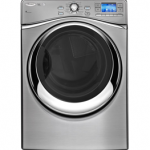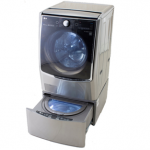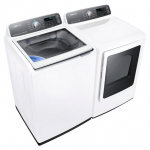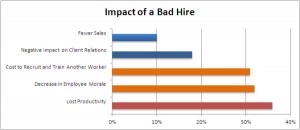 If you’re an appliance repair operator with a fleet of service trucks, you may be finding it difficult to keep them all on the road these days — not because your trucks are broken down but because you can’t find skilled service technicians to staff your growing business.
If you’re an appliance repair operator with a fleet of service trucks, you may be finding it difficult to keep them all on the road these days — not because your trucks are broken down but because you can’t find skilled service technicians to staff your growing business.
Why are qualified techs in such short supply? Because, unfortunately, ready-made appliance service techs with the background, experience, technological knowhow, and interpersonal skills you need to keep your business flourishing are nearly as rare as unicorns.
It’s not just the appliance repair industry that’s feeling the pinch of skilled trade scarcity. According to the National Association for Business Economics, there’s a shortage of skilled technicians and mechanics across all sectors of the U.S. economy. The Association reported that in July 2015, 44 percent of small businesses came up short in their search for qualified technical personnel. That adds up to a lot of jobs going unfilled — and in our industry, appliance repair business lost.
A lot of this talent shortage can be blamed on the too long and too recent “Great Recession” of the first decade (plus a few years) of this century. So many people who lost jobs simply gave up looking for work and remain unemployed or underemployed to this day. How many of those people, properly motivated and trained, would find excellent and rewarding careers in the appliance service industry? This is a subject ripe for speculation.
Another real problem is the 20th century emphasis on four-year college as the only valid pathway to achieving the American Dream. Thousands upon thousands of young people who took this mantra to heart now find themselves with expensive educations and crippling debt, but no real skills to enable them to pursue rewarding and productive careers. What if a significant proportion of those young people had been encouraged to train for technical or trade jobs that didn’t require the magical BS or BA degree but did offer intellectual stimulation, job stability, good pay, and personal satisfaction? If they had, the jobs outlook for the long-term employed might not look so dismal today — and our industry would be able to find the qualified techs we need, when we need them.
Of those young people who did find themselves in the appliance repair trade, many if not most have learned on the job. Unfortunately, that means they may not be trained to a level that allows them to cope with the increasingly sophisticated electronics and computer-controlled mechanisms of modern appliances. As a result, the appliance repair trade is full of parts-changers calling themselves technicians. Too many of them are really good at taking things apart and (maybe) putting them back together, but troubleshooting, schematics, circuits, and the expanding complexity of 21st century home appliance technology are far beyond their ken.
And to be blunt, some of the blame for lack of good help must rest with repair service owners themselves. Some owners are very skilled and up to date on current and emerging technology but don’t have the time to pass on their knowledge to their techs. Other owners may not have kept their own skills current so can’t properly train their staffs. And a certain percentage of owners simply don’t see the value of comprehensive training or think they can’t afford it.
If you fit into one of those categories (we won’t ask which one), Samurai Tech Academy can help you develop the your technical team’s skills. We are a reliable resource that is convenient and effective, and our courses are offered online so techs can complete modules at times that fit with their work schedule. We’ve found that having a trainee spend an hour or two a day working on the courses, then spending the remainder of the day alongside an experienced tech, gives them an ideal combination of theoretical and practical experience that improves learning and knowledge retention.
A trained, skilled workforce may be easier to find than you think. Samurai Tech Academy can help.



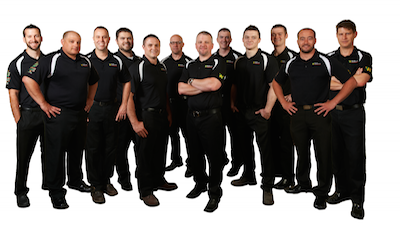 For most service companies, summer is the busiest season in the appliance repair business. Refrigerators especially seem to need attention during the hot months, possibly because customers want to keep the condensers dust-free and the gaskets tight to keep the motor running efficiently — or perhaps because they forget to do just that and their fridge gives up the ghost from overwork.
For most service companies, summer is the busiest season in the appliance repair business. Refrigerators especially seem to need attention during the hot months, possibly because customers want to keep the condensers dust-free and the gaskets tight to keep the motor running efficiently — or perhaps because they forget to do just that and their fridge gives up the ghost from overwork.